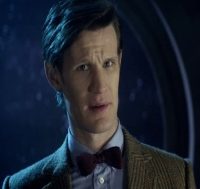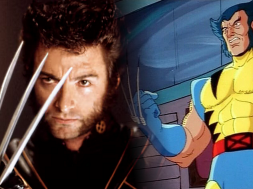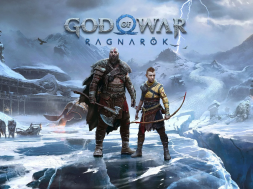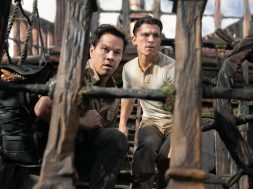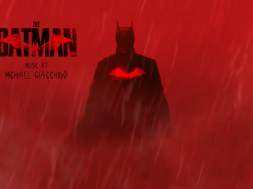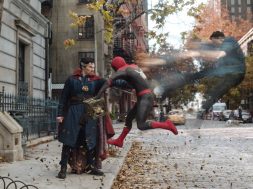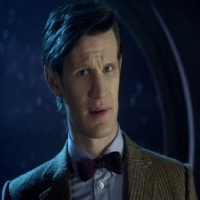
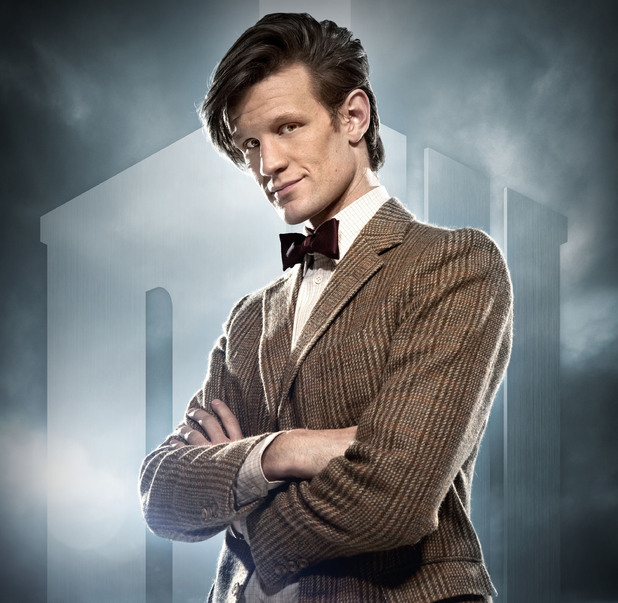
The announcement that Matt Smith will be leaving Doctor Who at the end of this year left me stunned, I have to say. It’s quite interesting, too. I’ve seen Christopher Eccleston and David Tennant come and go since I actually started watching the show, but this time feels a bit…different. When Eccleston left the show, I hadn’t really gotten fully into Doctor Who yet, so my thoughts were mostly “This scene is very sad-WOW he changed his face! This should be interesting!” Similarly, when Tennant left, it was quite sad to see him go, as it always is, but it was still a case of being very excited to see what will come next.
This time, though, it does feel a bit different, more…hard, I suppose? I mean, don’t get me wrong, I’m still extremely eager to see what comes next for Doctor Who, and who will be stepping into the Doctor’s shoes, but to me at least, it’s going to be incredibly weird to see a new face running around on Saturday nights next year. I’ve seen a great deal of what Doctor Who has to offer at this stage, seen a large amount of adventures from all eleven Doctors and loved them all to pieces, but if you put me on the spot and told me I had to pick, there’s no doubt in my mind that Matt Smith is my favourite. From the moment he (literally) exploded onto our screens to this exact moment and beyond, his run has been an utterly fantastic one, full of chills, laughs, and tears, so in this article, I’m going to be looking back on it, seeing just how much of an impact the Eleventh Doctor had on the Whoniverse, but more than anything else, looking at the Doctor himself.
LAST-TIME-I’LL-BE-MAKING-THIS-FOR-A-WHILE-AND-THAT’S-KIND-OF-SAD-WARNING: I doubt I have to mention it, but on the off-chance somebody’s not caught up, major spoilers ahead.
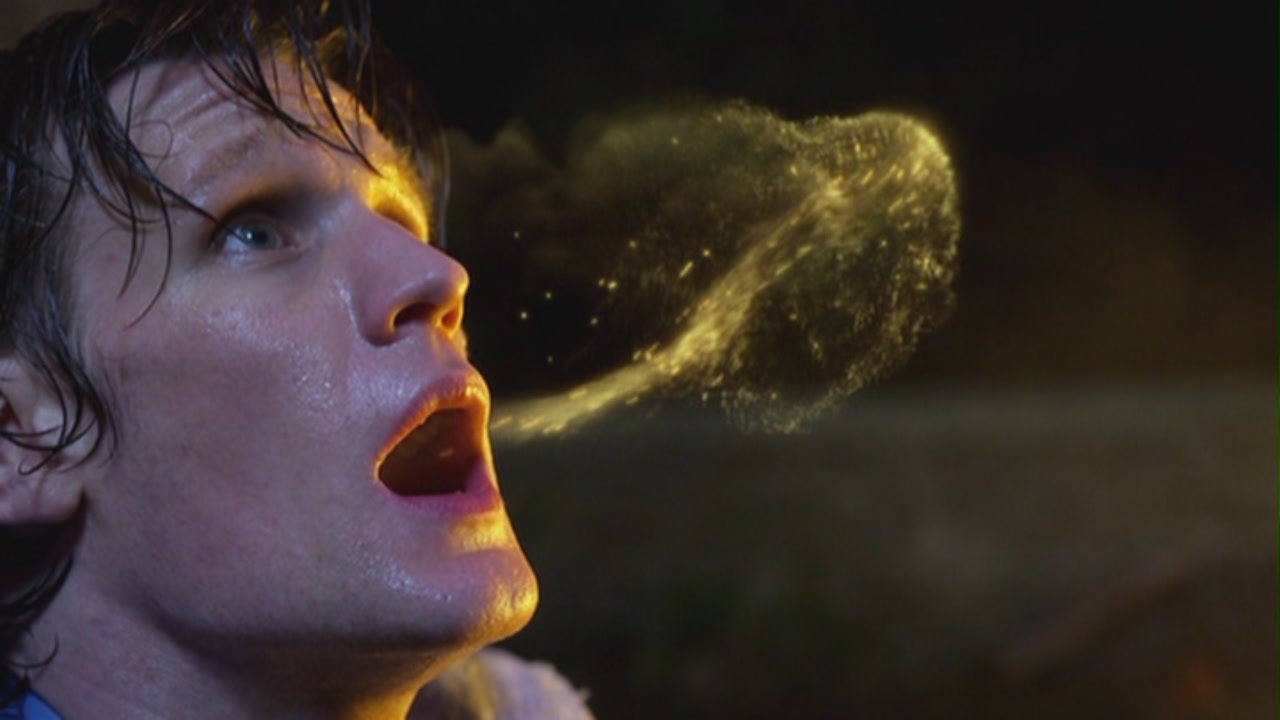 Our first glimpse of the Eleventh Doctor, at the conclusion of The End of Time, still remains one of my favourite memories of him, and very much sets the tone for the general awesome levels of his run. The new Doctors have traditionally been born in fairly quiet, calm circumstances, without too much immediate calamity incoming. The Eleventh Doctor, however, was born laughing and shouting amidst the ruins of his flaming, destroyed TARDIS as it screams down into a crash landing on Earth, surrounded by explosions and chunks of architecture crumbling and breaking apart. It was a very good start, and it left me hugely excited to see his actual run.
Our first glimpse of the Eleventh Doctor, at the conclusion of The End of Time, still remains one of my favourite memories of him, and very much sets the tone for the general awesome levels of his run. The new Doctors have traditionally been born in fairly quiet, calm circumstances, without too much immediate calamity incoming. The Eleventh Doctor, however, was born laughing and shouting amidst the ruins of his flaming, destroyed TARDIS as it screams down into a crash landing on Earth, surrounded by explosions and chunks of architecture crumbling and breaking apart. It was a very good start, and it left me hugely excited to see his actual run.
 2010 rolled around, and we were introduced to the Doctor properly with Series 5 and his opening episode, The Eleventh Hour, one that I still hold as a fantastic introductory episode of Doctor Who to show someone. In this, we got to see the Doctor meet his new companion, Amy Pond, who would last for a mighty two-and-a-half seasons before leaving, as well as her husband-to-be, Rory Williams. It showed us a Doctor who was extremely analytical, thinking at a million miles an hour as usual, but also quite quirky, even compared to many of his predecessors. The Eleventh Doctor immediately came across as more overtly alien than, perhaps, ever before, his introductory scene with the young Amelia Pond being a great example of this, and a trait that would become one of his defining ones. We saw a Doctor who knew of his own reputation and wouldn’t hesitate to use it, his magnificent threat to the Atraxi giving us a good hint of this. The episode ended with the Doctor heading off, now with Amy, a brand new (and gorgeous) TARDIS interior, a shiny new screwdriver, and of course, a tweed jacket and the coolest bow-tie in the universe.
2010 rolled around, and we were introduced to the Doctor properly with Series 5 and his opening episode, The Eleventh Hour, one that I still hold as a fantastic introductory episode of Doctor Who to show someone. In this, we got to see the Doctor meet his new companion, Amy Pond, who would last for a mighty two-and-a-half seasons before leaving, as well as her husband-to-be, Rory Williams. It showed us a Doctor who was extremely analytical, thinking at a million miles an hour as usual, but also quite quirky, even compared to many of his predecessors. The Eleventh Doctor immediately came across as more overtly alien than, perhaps, ever before, his introductory scene with the young Amelia Pond being a great example of this, and a trait that would become one of his defining ones. We saw a Doctor who knew of his own reputation and wouldn’t hesitate to use it, his magnificent threat to the Atraxi giving us a good hint of this. The episode ended with the Doctor heading off, now with Amy, a brand new (and gorgeous) TARDIS interior, a shiny new screwdriver, and of course, a tweed jacket and the coolest bow-tie in the universe.
The remainder of Series 5 showed us many things, and was in general a great run of episodes. The Beast Below showed us our first hint at the darkness that lay beneath this seemingly happy-go-lucky Doctor’s exterior, with one of the more chilling displays of the Doctor’s anger that we’ve seen. Victory of the Daleks brought us the redesigned New Dalek Paradigm, introducing yet another level of power to the deadliest of the Doctor’s foes. The Time of Angels/Flesh and Stone reintroduced us to both the Weeping Angels and River Song, and made major headway on setting up the series’ overlying arc. The Vampires of Venice gave us our proper introduction to Rory, who begins his travelling aboard the TARDIS. The rather-overlooked Amy’s Choice showed us a very interesting look at the duality that the Eleventh Doctor exhibits, with this episode literally having him confront a malicious representation of his darker side. The Hungry Earth/Cold Blood reintroduced the Silurians, last seen alongside the Third Doctor, to the modern series, as well as pulling off a shock companion death when Rory was killed. The utterly-brilliant Vincent and the Doctor gave us one of the series’ most outright sad episodes, with fantastic play between the Doctor and Van Gogh himself, as well as a very mature take on some genuinely serious issues. The Lodger introduced James Corden as minor-but-much-liked Craig Owens, as well as dropping a major foreshadowing hint for the series that would follow it.  Finally, the epic finale of Series 5, The Pandorica Opens/The Big Bang, aside from bringing Rory back, showed us the Doctor at his best as ever, introducing his now-infamous fez and featuring two of my personal favourite moments, those being the Doctor’s re-appearance at Amy’s wedding, and his extremely-poignant story to the sleeping Amelia. It was a wonderful end to a wonderful series, leaving me hardly able to wait for Series 6.
Finally, the epic finale of Series 5, The Pandorica Opens/The Big Bang, aside from bringing Rory back, showed us the Doctor at his best as ever, introducing his now-infamous fez and featuring two of my personal favourite moments, those being the Doctor’s re-appearance at Amy’s wedding, and his extremely-poignant story to the sleeping Amelia. It was a wonderful end to a wonderful series, leaving me hardly able to wait for Series 6.
The Eleventh Doctor’s next foray onto our screens was that year’s Christmas special, A Christmas Carol, still generally regarded as the best Christmas special of the show and a fantastic episode, with the Doctor’s whimsical plan, some hilarious scenes, a very interestingly done plot, and, of course, that little bit of heartbreak that accompanies all of the best Doctor Who stories. It was a lot more outright Christmas-y than the specials that had come before, a trend that would continue throughout the specials that followed it (and, of course, having Michael Gambon as the villain was fairly awesome, too).
 With 2011, Series 6 rolled onto our screens, and right off the bat, it was huge. The Impossible Astronaut/Day of the Moon opened with one of the best openers in the series’ history, with shock moment after shock moment. An older version of the Doctor was apparently shot and killed, with his past self remaining completely unaware of the fact and Amy, Rory and River knowing they had to keep it a secret at all costs. We were also finally introduced to the Silence, the villainous group who had been simmering away quietly in the background since the beginning of Series 5, and their terrifying alien accomplices, who had done what few other villains in Doctor Who had done: actually conquered the Earth. We discovered that Amy was pregnant, to boot, as if the stakes weren’t high enough already. This episode definitely showed us one of the Doctor’s more manipulative and callous moments, as he casually tricked the entire race of Silents into committing race-wide genocide.
With 2011, Series 6 rolled onto our screens, and right off the bat, it was huge. The Impossible Astronaut/Day of the Moon opened with one of the best openers in the series’ history, with shock moment after shock moment. An older version of the Doctor was apparently shot and killed, with his past self remaining completely unaware of the fact and Amy, Rory and River knowing they had to keep it a secret at all costs. We were also finally introduced to the Silence, the villainous group who had been simmering away quietly in the background since the beginning of Series 5, and their terrifying alien accomplices, who had done what few other villains in Doctor Who had done: actually conquered the Earth. We discovered that Amy was pregnant, to boot, as if the stakes weren’t high enough already. This episode definitely showed us one of the Doctor’s more manipulative and callous moments, as he casually tricked the entire race of Silents into committing race-wide genocide.
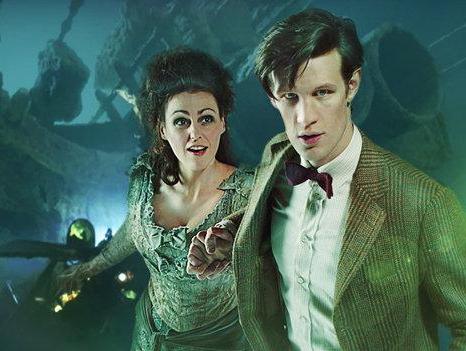 From there, Series 6 continued in full-flow. The Curse of the Black Spot was a fairly plot-light if still enjoyable episode that also let us see the Doctor’s take on pirates, always fun. That led into Neil Gaiman’s The Doctor’s Wife, which is to this day my favourite episode of the show overall, and introduced so much characterisation and backstory. For the first time, we saw the Doctor and his beloved TARDIS meet and speak in person, and all the madness and sadness one would expect comes about as a result. This was definitely an episode that reinforced the Eleventh Doctor’s particular love for his faithful ship, and the ending is one of the most bittersweet and tear-inducing scenes in Who history. The Rebel Flesh/The Almost People was a nicely-creepy episode that also gave us the fantastic sight of two Doctors working together on-screen, bouncing off each other hilariously and just generally having a good time, which was a great sight for all concerned.
From there, Series 6 continued in full-flow. The Curse of the Black Spot was a fairly plot-light if still enjoyable episode that also let us see the Doctor’s take on pirates, always fun. That led into Neil Gaiman’s The Doctor’s Wife, which is to this day my favourite episode of the show overall, and introduced so much characterisation and backstory. For the first time, we saw the Doctor and his beloved TARDIS meet and speak in person, and all the madness and sadness one would expect comes about as a result. This was definitely an episode that reinforced the Eleventh Doctor’s particular love for his faithful ship, and the ending is one of the most bittersweet and tear-inducing scenes in Who history. The Rebel Flesh/The Almost People was a nicely-creepy episode that also gave us the fantastic sight of two Doctors working together on-screen, bouncing off each other hilariously and just generally having a good time, which was a great sight for all concerned.
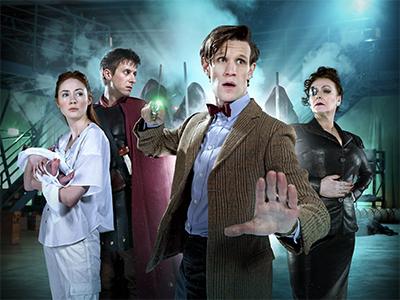
 Into further adventures went Series 6, with the follow-up to the above, Let’s Kill Hitler, a generally-hilarious episode to counterbalance the seriousness of its predecessor, and also an episode that introduced a lot of elements that would come along later. We see the point where Melody Pond regenerates into the River we know, we are introduced to the shape-shifting Teselecta, a very important plot-point, and the Doctor discovers the truth about his impending death, also being informed of why the Silence are targeting him: something they call “the first question”. This was followed by Night Terrors, again, a generally plot-light but fun episode, that ended with a very sinister reminder of what was coming for the Doctor. The Girl Who Waited, another utterly amazing episode, showed us one of the Doctor’s darkest and most genuinely out-of-character moments yet, where he tricks and manipulates his own companion(well, her future counterpart, in any case), leaving her to die, a moment that reminds us yet again how callous the Doctor can be, and hammers home the continual deconstruction of his character that Series 6 excelled at. This only developed further in The God Complex, a marvellous episode where the Doctor deconstructs himself to save Amy, breaking her faith in him completely, presenting himself not as an invincible all-knowing hero, but simply as an over-excited fool who always lands those he loves in danger and doesn’t think it through. We see how much development the Doctor has undergone as a character when he willingly drops Amy and Rory home, back to their normal life, letting them go early before something happens to them, something very meaningful by the Doctor’s standards. We then have a nice break from all the seriousness in Closing Time, another breather episode featuring the return of Craig, although the ending takes a serious turn for the dramatic when we see River imprisoned inside her astronaut suit, ready to kill the Doctor…roll on finale.
Into further adventures went Series 6, with the follow-up to the above, Let’s Kill Hitler, a generally-hilarious episode to counterbalance the seriousness of its predecessor, and also an episode that introduced a lot of elements that would come along later. We see the point where Melody Pond regenerates into the River we know, we are introduced to the shape-shifting Teselecta, a very important plot-point, and the Doctor discovers the truth about his impending death, also being informed of why the Silence are targeting him: something they call “the first question”. This was followed by Night Terrors, again, a generally plot-light but fun episode, that ended with a very sinister reminder of what was coming for the Doctor. The Girl Who Waited, another utterly amazing episode, showed us one of the Doctor’s darkest and most genuinely out-of-character moments yet, where he tricks and manipulates his own companion(well, her future counterpart, in any case), leaving her to die, a moment that reminds us yet again how callous the Doctor can be, and hammers home the continual deconstruction of his character that Series 6 excelled at. This only developed further in The God Complex, a marvellous episode where the Doctor deconstructs himself to save Amy, breaking her faith in him completely, presenting himself not as an invincible all-knowing hero, but simply as an over-excited fool who always lands those he loves in danger and doesn’t think it through. We see how much development the Doctor has undergone as a character when he willingly drops Amy and Rory home, back to their normal life, letting them go early before something happens to them, something very meaningful by the Doctor’s standards. We then have a nice break from all the seriousness in Closing Time, another breather episode featuring the return of Craig, although the ending takes a serious turn for the dramatic when we see River imprisoned inside her astronaut suit, ready to kill the Doctor…roll on finale. 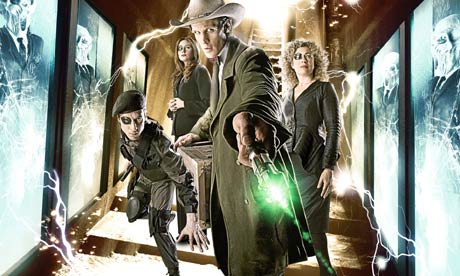 The Wedding of River Song, which finally reveals to us both the actual status of the Doctor and River’s relationship (not exactly what it seems) and how the Doctor fakes his own death to escape it(a very well-executed plot-point). With the dangerously-damaged universe restored and everyone in it believing that the Doctor is dead, we get one last reveal from the returning Dorium Maldovar: the prophecy that influenced the Silence to form in the first place, and the nature of the First Question:
The Wedding of River Song, which finally reveals to us both the actual status of the Doctor and River’s relationship (not exactly what it seems) and how the Doctor fakes his own death to escape it(a very well-executed plot-point). With the dangerously-damaged universe restored and everyone in it believing that the Doctor is dead, we get one last reveal from the returning Dorium Maldovar: the prophecy that influenced the Silence to form in the first place, and the nature of the First Question:
“The fields of Trenzalore, the fall of the Eleventh, and the Question. The first question, the question that must never be answered! Hidden in plain sight! The question you’ve been running from all your life! Doctor Who?“
Makes me grin every time.
Following 2011’s lighthearted Christmas special, The Doctor, the Widow and the Wardrobe, where we see the Doctor reveal himself to still be alive to Amy and Rory after two years, who are understandably extremely glad to see him, leading to the kick-off of Series 7. The opener, Asylum of the Daleks, shows us a much darker and angrier Doctor, bitter from his time alone. He has been travelling, wiping all records of himself out of existence to prevent everything to do with the prophecy. Not helping his mood, of course, is the return to power of the Dalek Parliament, now showing the Daleks not as isolated but dangerous groups, but a full-on empire, similar to their classic portrayal. We are also introduced to Jenna-Louise Coleman’s Oswin Oswald, a cocky young computer expert who helps the Doctor throughout the episode, and who is shown in the episode’s climax to have become a Dalek herself. The episode ends with even the Daleks having completely forgotten who the Doctor is, Clara dead, and the Doctor, Amy and Rory off on yet more travels.
 The rest of Series 7’s first half is relatively light on the overarching plot, all things considered. Dinosaurs on a Spaceship is simply a fun romp that also shows us even more of the Doctor’s continually-escalating darker side, as he casually allows the villain to be murdered in cold blood out of revenge. We can see that the Doctor’s trials lately have clearly been pressing at him, understandably. A Town Called Mercy continues this trend, with the Doctor almost shooting the villain due to said villain taking a similar stance to the Doctor himself during the Last Great Time War, something the Doctor despises. The Power of Three is another very light-hearted episode that shows us UNIT’s return to the series, along with Kate Stewart, daughter of the venerable Brigadier. Finally, the first half finale, The Angels Take Manhattan, finally says goodbye to Amy and Rory, as the two make their exits from the show by way of Weeping Angel, leaving the Doctor heartbroken, without this incarnation’s oldest friends.
The rest of Series 7’s first half is relatively light on the overarching plot, all things considered. Dinosaurs on a Spaceship is simply a fun romp that also shows us even more of the Doctor’s continually-escalating darker side, as he casually allows the villain to be murdered in cold blood out of revenge. We can see that the Doctor’s trials lately have clearly been pressing at him, understandably. A Town Called Mercy continues this trend, with the Doctor almost shooting the villain due to said villain taking a similar stance to the Doctor himself during the Last Great Time War, something the Doctor despises. The Power of Three is another very light-hearted episode that shows us UNIT’s return to the series, along with Kate Stewart, daughter of the venerable Brigadier. Finally, the first half finale, The Angels Take Manhattan, finally says goodbye to Amy and Rory, as the two make their exits from the show by way of Weeping Angel, leaving the Doctor heartbroken, without this incarnation’s oldest friends.
When we next see the Doctor in 2012’s Christmas special, The Snowmen, he is arguably at his worst point. He simply sits brooding in the TARDIS, disillusioned and sick of losing everything he has, refusing to deal with anything. Vastra, Jenny and Strax, making their return, have been attempting to get him back to his old self for ages, but to no avail. All of this lasts until he comes across a barmaid, one Clara Oswald. Not recognising her due to having never seen her face in Asylum of the Daleks, he eventually finds himself slowly brought back into the adventuring spirit by her (the scene where he re-affirms that bow-ties are cool, almost lovingly, is one of the subtlest but sweetest scenes in his run, in my opinion), until, at the episode’s climax, she is killed. The Doctor, devastated again, is suddenly reinvigorated when Clara says to him “Run, you clever boy…and remember”, something that Oswin had said to him. Overjoyed at the prospect of solving this mystery, the Doctor returns to the TARDIS and sets off in full blaze to figure out what’s going on with her.
Aside from all of that, The Snowmen also reintroduces the Great Intelligence into the modern series, last seen during the Second Doctor’s run, and now played by Richard E. Grant as an extremely chilling villain (no pun intended), which I thought at the time was an extremely cool nod to the past. Little did I know what would come next…

The second half of Series 7 began with The Bells of Saint John, introducing us to the modern-day Clara Oswald, who begins her journey with the Doctor, now out of his brooding and delighted to have found her. We see what effects losing his companions has had on the Doctor, he’s noticeably more careful and analytical, no longer rushing head-on into things without thinking them through first to avoid endangering Clara. The Bells of Saint John also shows us that what seemed like a one-off appearance for the Great Intelligence was anything but…
 Series 7 continued with the gorgeous The Rings of Akhaten, an episode that had a fantastic scene for the Doctor at the climax, where he uses the pain and sorrow he has endured in his long, long life to literally overpower and nearly kill a parasitic god, an incredible moment for the series. Cold War saw the return of the Ice Warriors to the modern series in a very tense and quite creepy episode. Hide was an excellent episode that showed us another wonderful insight into the Doctor’s character, with Clara’s revelation that everyone must seem like ghosts to him, due to his age and ability to be anywhere in time. It was a quiet moment, but a great one. Journey to the Centre of the TARDIS was one of the highlights of an already-great series, showing us how utterly maddened the Doctor is by his inability to solve the mystery surrounding Clara, as well as yet more of that oh-so-wonderful interaction between the Doctor and his TARDIS (seeing so much of the TARDIS was just the icing on an already-delicious cake). The Crimson Horror was a nice breather episode, mostly focusing on the Paternoster trio, although the Doctor’s highly amusing Yorkshire accent is a good point. The episode also included a slight advancement on the Clara mystery, where she is briefly shown a record of one of her “other” lives. Nightmare in Silver brought the Cybermen back to the serious in glorious style, making them terrifying again, and also giving us one of Matt Smith’s best performances to date, as he plays off against himself as both the Doctor and the Cyberplanner, “Mr. Clever”. All breaths were held and eyes were locked on-screen as the finale came around, a finale that promised to change everything…
Series 7 continued with the gorgeous The Rings of Akhaten, an episode that had a fantastic scene for the Doctor at the climax, where he uses the pain and sorrow he has endured in his long, long life to literally overpower and nearly kill a parasitic god, an incredible moment for the series. Cold War saw the return of the Ice Warriors to the modern series in a very tense and quite creepy episode. Hide was an excellent episode that showed us another wonderful insight into the Doctor’s character, with Clara’s revelation that everyone must seem like ghosts to him, due to his age and ability to be anywhere in time. It was a quiet moment, but a great one. Journey to the Centre of the TARDIS was one of the highlights of an already-great series, showing us how utterly maddened the Doctor is by his inability to solve the mystery surrounding Clara, as well as yet more of that oh-so-wonderful interaction between the Doctor and his TARDIS (seeing so much of the TARDIS was just the icing on an already-delicious cake). The Crimson Horror was a nice breather episode, mostly focusing on the Paternoster trio, although the Doctor’s highly amusing Yorkshire accent is a good point. The episode also included a slight advancement on the Clara mystery, where she is briefly shown a record of one of her “other” lives. Nightmare in Silver brought the Cybermen back to the serious in glorious style, making them terrifying again, and also giving us one of Matt Smith’s best performances to date, as he plays off against himself as both the Doctor and the Cyberplanner, “Mr. Clever”. All breaths were held and eyes were locked on-screen as the finale came around, a finale that promised to change everything…
 …and what a finale it was. The Name of the Doctor finally wrapped up the three-series plot arc of the Silence and Trenzalore, as the mysterious place was revealed to be the Doctor’s grave, the place where he is buried, long into the future inside the remains of his also-dead TARDIS. The Great Intelligence made a return with one of the most villainous plots yet seen in Doctor Who: to enter the Doctor’s timestream and personally destroy every moment of his life. The Clara mystery was solved at last (in a hugely-satisfying way) as it was revealed that she, too, had scattered herself across the Doctor’s timeline to save him. It seems that River Song’s story has finally ended, as the Doctor finally bids her farewell in a very tear-jerking scene. We see the Doctor face one of his greatest fears, his own death, and do it with the courage we expect from him, as well as managing to save Clara when it should have been impossible. We get a great bit of insight into the Doctor’s chosen name, one that reinforces everything we know about him. And finally, we see the Doctor face his greatest secret: his mysterious lost incarnation, who had the name of “the Doctor” revoked for some unspecified, terrible reason…
…and what a finale it was. The Name of the Doctor finally wrapped up the three-series plot arc of the Silence and Trenzalore, as the mysterious place was revealed to be the Doctor’s grave, the place where he is buried, long into the future inside the remains of his also-dead TARDIS. The Great Intelligence made a return with one of the most villainous plots yet seen in Doctor Who: to enter the Doctor’s timestream and personally destroy every moment of his life. The Clara mystery was solved at last (in a hugely-satisfying way) as it was revealed that she, too, had scattered herself across the Doctor’s timeline to save him. It seems that River Song’s story has finally ended, as the Doctor finally bids her farewell in a very tear-jerking scene. We see the Doctor face one of his greatest fears, his own death, and do it with the courage we expect from him, as well as managing to save Clara when it should have been impossible. We get a great bit of insight into the Doctor’s chosen name, one that reinforces everything we know about him. And finally, we see the Doctor face his greatest secret: his mysterious lost incarnation, who had the name of “the Doctor” revoked for some unspecified, terrible reason…
Suffice it to say, the Eleventh Doctor’s run has been an utter roller-coaster ride. All manner of terrifying enemies and ghastly creatures have come and gone, companions have been loved and then lost, and plot developments have literally hit the viewers like a train. The Doctor has had an enormous amount of character development, and Matt Smith has perfectly portrayed him throughout, as a man who takes great joy from all of the simplest things and seems childlike, but oh-so-old at the same time. A man who can joke about his outdated fashion sense one minute, and come across as the most terrifying things in the universe the next. A complex, complex character, as is so befitting the Doctor, and it’s hard to think of anyone who could have done it better than Matt Smith. He has truly embodied all elements of the Doctor, made the role his own in such a concrete way.
It’s not over yet, of course. We still have the epic multi-Doctor 50th Anniversary special to come this November, which will doubtlessly blow our minds inside-out, and following that will be this year’s Christmas special, the final episode of the Eleventh Doctor’s run. It’s been a hell of a run, and whoever comes to be the Twelfth Doctor has some very big boots to fill. I’m utterly confident that they’ll do it and everything will be as fantastic as ever, but I can’t say I’m not gonna be sad when Smith leaves. He was my Doctor, and he will be sorely missed.

